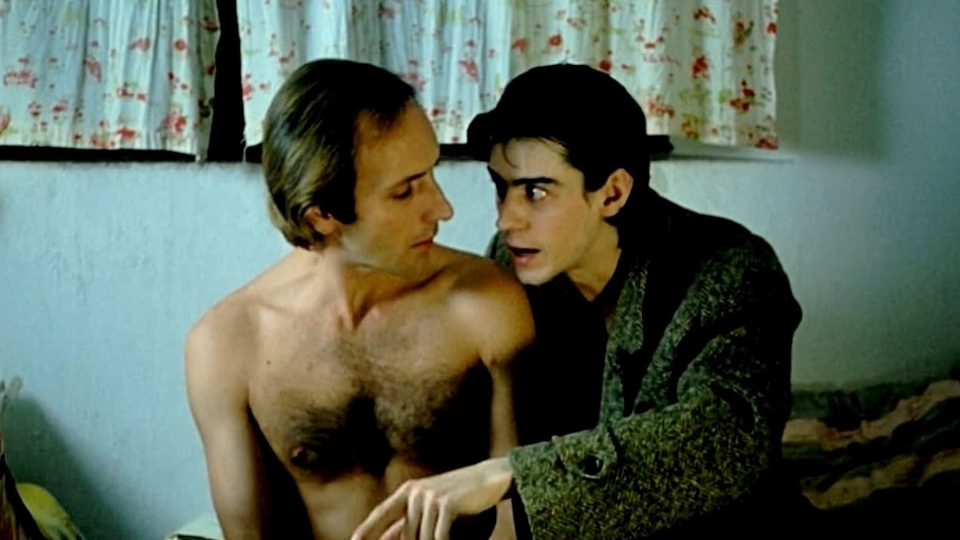Arrebato

Roger Ebert said, “It’s not what a movie is about, it’s how it is about it.” I’m not sure what Arrebato is about, but I love how it is about it.
The plot concerns José, a frustrated, drug-addled filmmaker who receives a mysterious audio cassette and film reel from an old acquaintance named Pedro. Flashbacks show how the two men met. Pedro seems obsessed with something he calls “The Rapture,” which he can elicit by producing nostalgic toys from people’s childhood. He hints at time travel. I wondered if Pedro had discovered a way to time travel within his own body, sort of de-age himself. Not quite.
As present-day José listens to Pedro’s tapes and fights with his live-in girlfriend, we get another set of flashbacks. These detail the events leading to Pedro mailing the tape and film to José. Pedro has taken to filming himself sleeping using an interval timer. Mysterious red frames emerge in the developed film, which Pedro associates with The Rapture. His obsession deepens. Without the red frames, he sinks into “withdrawal” and “regresses”. Said regression sees him conjure a persona that resembles Andrew Eldritch. Indeed, Pedro’s guises comprise various post-punk icons, although the film predates them all.
Despite the confusing plot, the film engenders a palpable sense of tension and dread. The performances convince and the obtuse presentation adds to the sense that the film is proffering a mystery for us to solve.
But unlike similar enigmas from the likes of David Lynch, Arrebato didn’t resonate. The finale left me underwhelmed. In hindsight, I suspect writer/director Iván Zulueta was trying to make a film about drug abuse. The “rapture” and “withdrawal” metaphors work. As do the time travel and childhood nostalgia allegories. But the focus on cinema and the images presented escapes me.
Still, I enjoyed the journey. I’d love to see this get a boutique Blu-ray release, if only to hear smarter folks than I discuss this ambitious work.